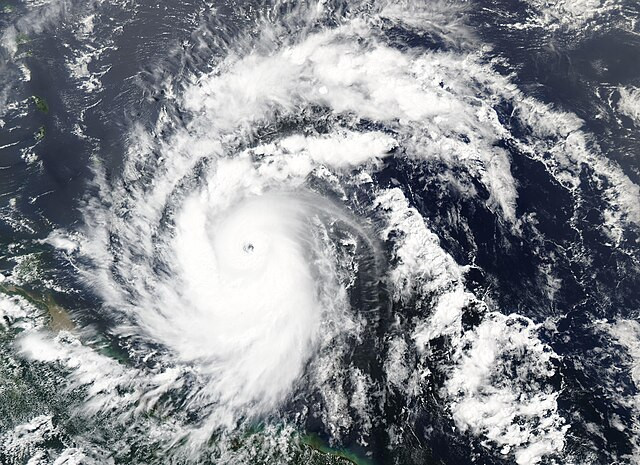Hurricane Beryl has emerged as the most powerful hurricane ever recorded in July, leaving a trail of devastation across the Caribbean. This tropical cyclone, now a Category 5 storm, has set numerous records, which experts attribute to the impacts of climate change. Beryl developed rapidly and much earlier in the season than usual, marking the fastest intensification of any hurricane before September 1, a typically more intense period of the Atlantic hurricane season.
On Monday, Beryl was declared a Category 5 hurricane, the highest rating on the Saffir-Simpson Hurricane Scale, as its winds surpassed 155 miles per hour. This storm has become the strongest hurricane on record for both June and July.
Scientists have long warned that global warming will lead to more intense hurricanes due to warmer ocean waters, giving residents less time to prepare for their impacts. The National Oceanic and Atmospheric Administration (NOAA) had previously forecast an 85% chance of an "above-normal" 2024 hurricane season in the Atlantic. The NOAA predicted between 17 and 25 named storms during this period, with eight to 13 of them developing into hurricanes, and four to seven becoming major hurricanes.
This year's increased hurricane activity is partially attributed to the El Niño-Southern Oscillation, a climate pattern that generally strengthens hurricane activity due to varying water temperatures. Currently, ocean temperatures in the Atlantic Basin are at record-warm levels, contributing to the rapid intensification of storms like Beryl.
Jamaica has announced an island-wide curfew as Hurricane Beryl approaches its shores. So far, at least six people have been killed, including three in Grenada and Carriacou, one in St. Vincent and the Grenadines, and two in northern Venezuela. Jamaican Prime Minister Andrew Holness declared the entire island a disaster area, imposing a curfew from 6 a.m. to 6 p.m. local time on Wednesday. Holness emphasized the severe impact of climate change, stating, "While our carbon emissions are minuscule, our region bears the brunt of the impacts of the change."
Residents of the affected islands are facing severe hardships. A Union Island resident told the BBC, "almost the whole island is homeless," highlighting the urgent need for food, water, first aid kits, and power.
The National Hurricane Center (NHC) has issued warnings that Beryl, although slightly weakened to a Category 4 storm with sustained winds of 145 mph, will still pose significant threats as it moves toward Jamaica. The hurricane is expected to pass near or over Jamaica on Wednesday, bringing life-threatening winds and storm surge. Beryl is then projected to move over the Yucatan Peninsula of Mexico early Friday.
The storm surge along the Jamaican coast could reach 6 to 9 feet above normal tide levels, according to the NHC. Although some weakening is forecast during the next few days, Beryl is expected to remain a significant hurricane as it traverses the Caribbean. The storm has triggered warnings and advisories across Haiti, the Dominican Republic, and the Cayman Islands.
Jamaica's Prime Minister Andrew Holness has urged residents to take the hurricane seriously and prepare for potential impacts while remaining calm. He assured that officials have implemented several precautionary measures in anticipation of Beryl's arrival.
Beryl made landfall on Carriacou Island in Grenada as a Category 4 hurricane on Monday, causing at least three deaths and devastating Grenada, St. Vincent, and the Grenadines. The storm then regained strength over the Caribbean Sea, becoming the earliest Category 5 hurricane on record.




